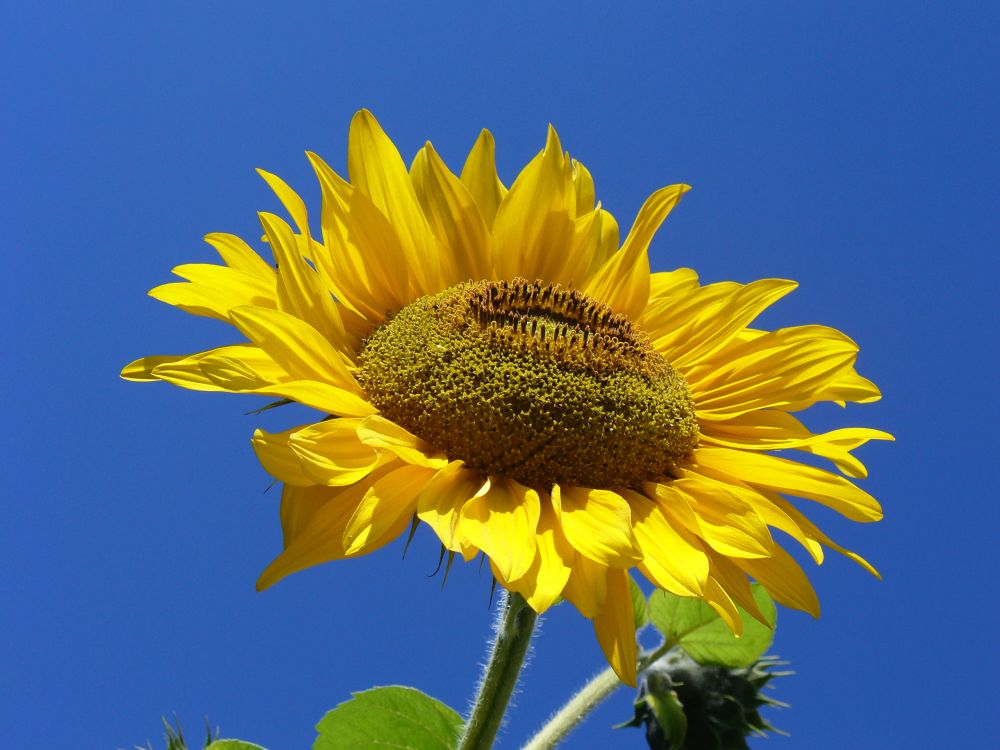
A breakthrough in the sequencing of the sunflower genome could help in developing crops that are better able to adapt to climate change.
This new resource will assist future research programs using genetic tools to improve crop resilience and oil production.
University of Georgia researchers published their findings in the journal Nature.
Known for its beauty and also as an important source of food, the sunflower is a global oil crop that shows promise for climate change adaptation because it can maintain stable yields across a wide variety of environmental conditions, including drought.
However, assembling the sunflower genome has until recently been difficult, because it mostly consists of highly similar, related sequences.
'Traits of interest'
The research team in North America and Europe sequenced the genome of the domesticated sunflower Helianthus annuus L.
They also performed comparative and genome-wide analyses, which provide insights into the evolutionary history of Asterids, a subgroup of flowering plants that includes potatoes, tomatoes and coffee.
They identified new candidate genes and reconstructed genetic networks that control flowering time and oil metabolism, two major sunflower breeding traits, and found that the flowering time networks have been shaped by the past duplication of the entire genome.
Their findings suggest that ancient copies of genes can retain their functionality and still influence traits of interest after tens of millions of years.
Breeding programs
The authors concluded that this research reinforces the sunflower as a model for ecological and evolutionary studies and climate change adaptation, and will accelerate breeding programs.
"It will greatly facilitate our work to understand the molecular mechanisms underlying key traits related to abiotic stress resistance--things like drought, salinity and low nutrient resistance," Professor John Burke, a member of the University of Georgia Plant Centre and lead author of the study said.
"This genome sequence will essentially serve as a genetic road map to pinpoint the genes underlying these sorts of traits."
